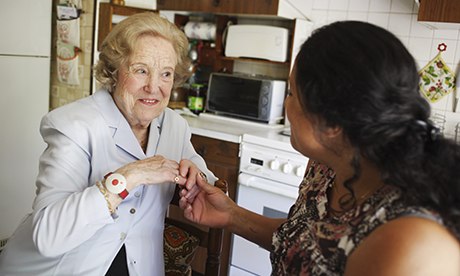Personal experiences are often ignored by the social care system, but professionals can learn a lot from patients and their families.

An understanding of
what dementia is really like both for the individual and their family is
often missed in care training.
What is often missed is the understanding about what dementia is really like – both for the individual and their family.
I'm not an academic. University wasn't an option for me; my dad needed me and there was nowhere else I was going to be other than by his side. He lived with vascular dementia for 19 years, going 10 years without a diagnosis and then spending nine years in three different care homes. Dad's dementia began when I was just 12 years old, and went on to dominate my teens and twenties. He passed away in 2012 aged 85.
Read more...
Listen to an interview with Richard White, Stanfield Nursing Home's owner, about music therapy and dementia
